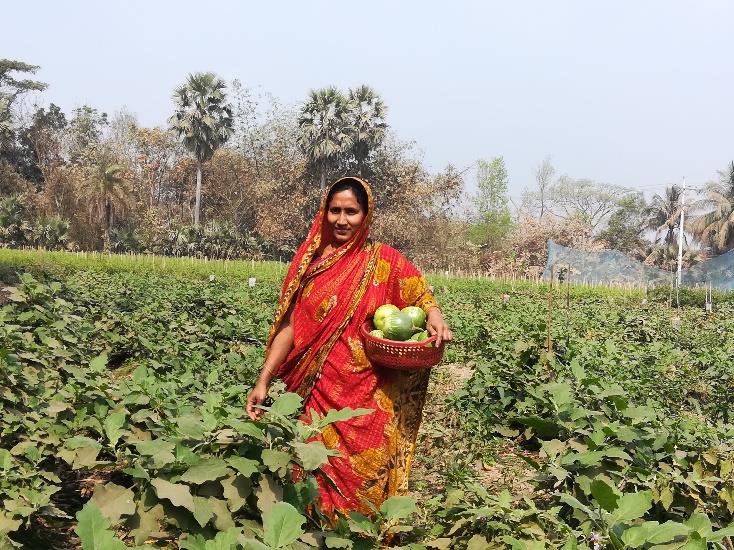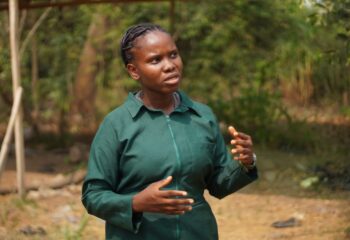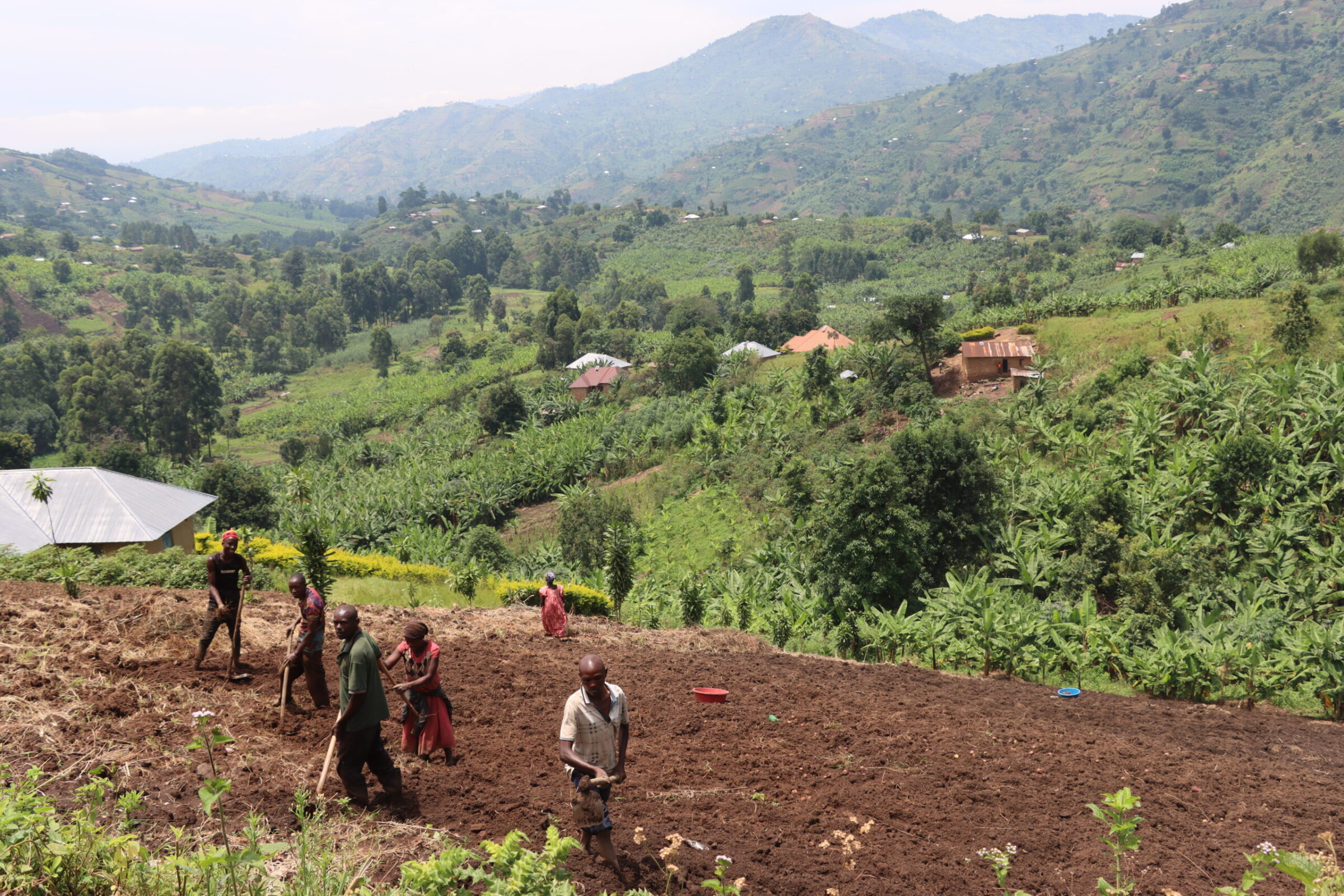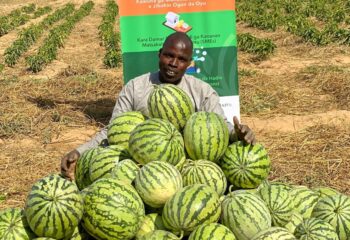
Monira, 32, is one of the AVPI beneficiaries in Bangladesh. She was a grade 10 student when she married Abu Hanif Mondal, who is a farmer. She and her husband have cultivated and sold seasonal crops, including vegetables, on about 5 acres of their own family land over the last 14 years. They have one son and one daughter, who are students in grades 8 and 3, respectively.
Monira and Abu cultivate rice on 2.31 acres and various vegetables (cabbage, cauliflower, tomato, sweet gourd, country bean, chili, red amaranth, eggplant, etc.) on 2.64 acres of land. In 2014, Monira participated in a two-day IFDC-Walmart training program on vegetable production. She learned Integrated Soil Fertility Management (ISFM) practices such as how to grow vegetables effectively using good variety seeds/saplings, optimum time of planting, spacing (plant-to-plant and row-to-row), use of balanced fertilizer (including mineral and organic sources), better water management, integrated pest management (IPM) methods, and Fertilizer Deep Placement (FDP) technology. After training, she initially applied GAPs to one crop on a small piece of land. She also applied FDP on her country bean garden along with other good practices. Her country bean production increased dramatically. She and her husband gradually began using FDP and the other good practices she had learned from the training program on all their vegetable crops. She received good production from all her FDP Monira happily picking eggplant from her field to sell in a nearby market but was not getting good returns from her vegetable crop sales because of her limited knowledge on market-related information and post-harvest management. Although production increased considerably, they sold their products from the field at comparatively low prices. However, her fellow farmers (especially men), who had good knowledge about market demand, supply, and prices charged more for those items.
In July 2017, Monira attended a seminar on vegetable and fruit marketing organized by AVPI. In that seminar, she learned about post-harvest management and marketing vegetables more effectively at premium prices for different crops. In this seminar, she also learned about washing vegetables without damaging the crops, grading, shorting, wrapping, and packaging to receive premium prices for different products. She further learned from local market actors about the optimum time of vegetable harvesting. AVPI organized several such seminars on vegetable marketing to improve women farmers’ market knowledge and their access to market information. These seminars establish linkages between growers and buyers, including commission agents, traders, wholesalers, and retailers. The growers learn from the buyers about their requirements regarding product quality in order to receive a good price. In addition, the buyers learn about the purchasing price of different vegetable products. Monira actively participated in the seminar and also did group work with other growers and buyers. This helped to improve her knowledge on post-harvest handling, peak demand seasons, and variations in prices for products of varying quality. After attending the seminar, she discussed in detail with her husband what she learned from the seminar. She convinced her husband to apply the knowledge she had gathered on various aspects of marketing from the IFDC-Walmart Foundation vegetable seminar. She started building her marketing network with the market actors she met at the seminar. Her bargaining power gradually increased, which helped her to receive better vegetable prices. Sometimes she visits the markets with her husband for a better understanding of the market situation. She usually gets information on market supply, demand, and prices by contacting the market actors via telephone. In 2017-18, she was able to sell her vegetable crops at comparatively higher prices.
The prices were almost the same as those of her fellow farmers who had knowledge about vegetable markets. Now she is very eager to adopt new technology in crop production as well as vegetable marketing. Monira also learned how to use trickle irrigation to save water and thus the cost of production from an AVPI field monitoring officer (FMO). In the 2018 winter vegetable season, she used a trickle irrigation system in her tomato field to reduce irrigation cost. She is very happy with her vegetable production. Monira now pays more attention to improving her vegetable crop quality through grading, sorting, and packaging. She is more aware of consumer preferences. She hopes to one day increase the earnings from her vegetable business so that she can afford higher education for her children. Monira plans to form a women’s vegetable business group. This group will bring their vegetable crops to one central location where the buyers will purchase the produce. Monira says “One day, with growing knowledge on marketing, the women vegetable group will be empowered and will play an important role in developing the rural area.”



